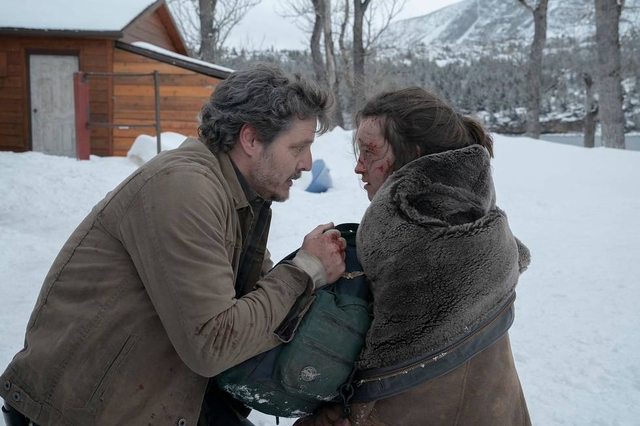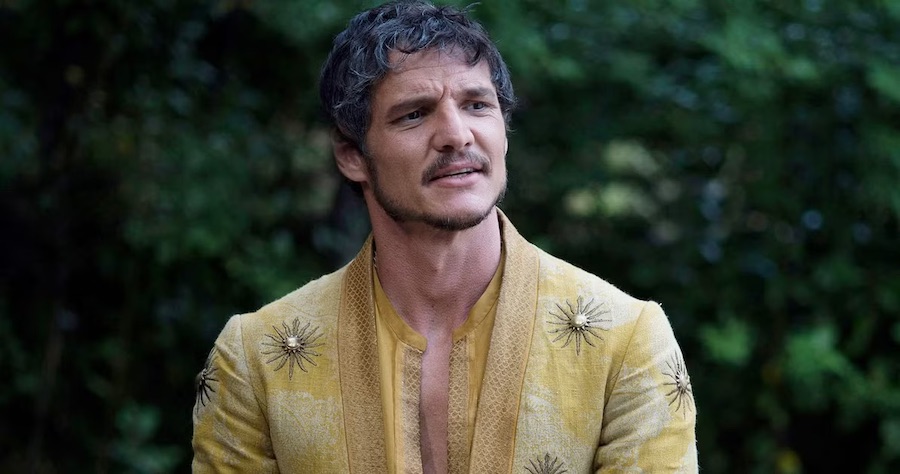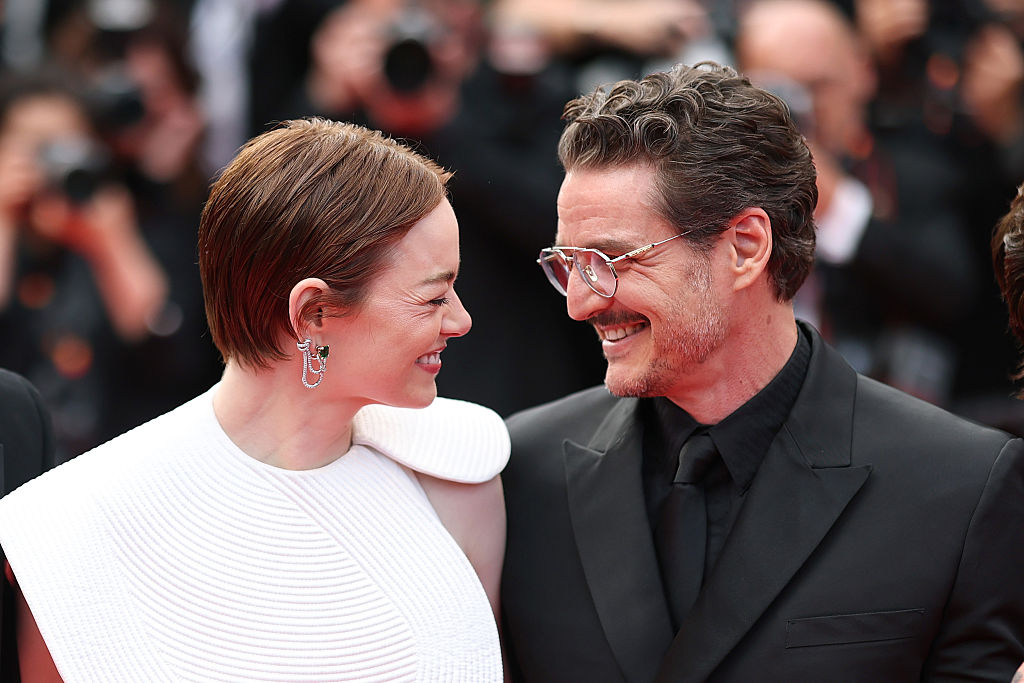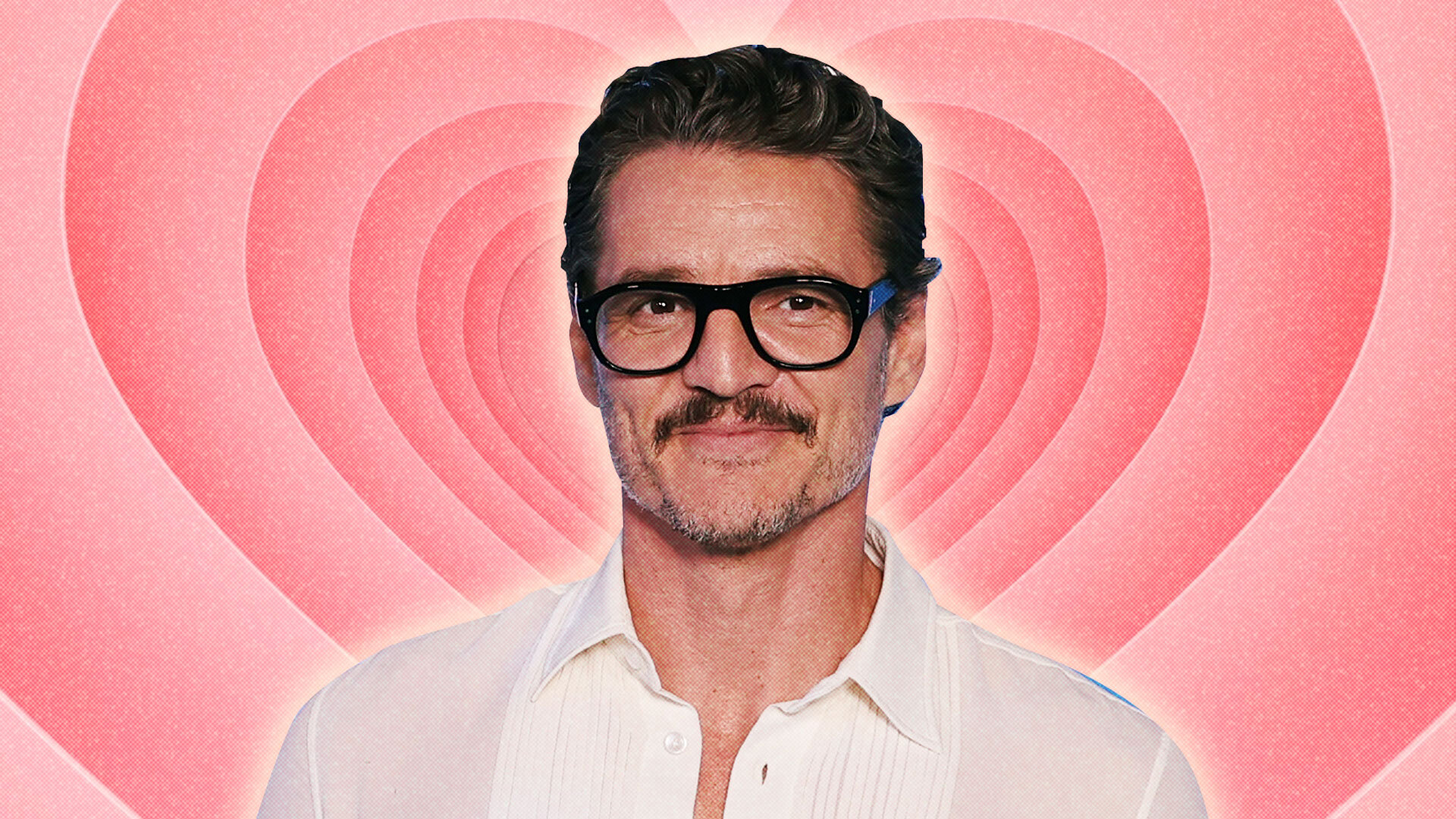The internet is obsessed with Pedro Pascal. Not only was he named among the top 100 most influential people in 2023 by Time magazine, but his press tours for The Fantastic Four, Eddington, and Materialists have taken over TikTok with thirsty fan edits. Or as Karen Valby wrote in her Vanity Fair July/Aug cover story: “The actor’s emotional depth onscreen and exuberance everywhere else have skyrocketed him to the top of every director’s wish list and made him a sex symbol in middle age.”
And it’s not just about being hot — though, yes, the salt-and-pepper thing is doing a lot, and don’t get me started on his biceps-reveal at the Cannes red carpet. It’s because Pedro Pascal embodies a type of masculinity that finally feels safe, soft, and self-aware. He’s not the lone wolf or the growling alpha; he’s the man who will cradle a tiny alien baby and your feelings. And culturally? We’re eating it up because we’re starving for it. (I mean, just google “the pedro pascal edit” for receipts.)
Pascal’s popularity is proof that when you give the audience something different, protective, and empathetic, they don’t just like it. They swoon. From Sarah Paulson to Bella Ramsey, no one he’s worked with has a bad thing to say about him. He’s the dream guy in the rom coms (definitely cast him more of those, ASAP) and in every universe. He’s not the traditional “alpha” or smoldering lone wolf; he’s hot because he’s emotionally available, humble, protective without being controlling.
He’s sexy to everyone — even straight men love him (men with taste, that is). This is a cultural craving that goes beyond celebrity crushes; it’s about a shift in what we find attractive in masculinity. We’ve always swooned over men showing tenderness (Exhibit A: Mr Darcy’s hand flex). So, why is Pedro Pascal’s behavior causing such an uproar among the manosphere? It’s not clocking to them that this is the true female gaze.
He’s Daddy, But Not the Way You’re Thinking
View this post on Instagram
Pedro Pascal being “Daddy” has nothing to do with dominance and everything to do with emotional availability and very good hugs.
In a media landscape that still tries to sell us the brooding, emotionally constipated bad boy as peak desirability, Pascal’s whole vibe is a refreshing left turn. He’s not telling anyone to smile. He’s not giving lectures about “men being men.” He is, instead, giving soft eyes, forehead kisses, and the distinct energy of a man who would bring you tea without being asked, run you a bath, and let you pick the movie. He would also help you choose a nail design and treat you like a princess.

Let’s call it emotionally fluent masculinity, a term we should absolutely trademark. It listens more than it speaks, protects without controlling, and knows when to cry and when to crack a joke. It’s masculinity that doesn’t feel like a threat, but a warm, weighted blanket. Pedro Pascal doesn’t just play hot guys. He plays emotionally complicated hot guys who know how to love without possession.
- Joel (The Last of Us): A grieving father figure who will literally shoot zombies to protect a teenage girl. Not biologically his daughter, but full girl dad energy. Quiet grief in a corduroy shirt? We still haven’t gotten over that death!
- Din Djarin (The Mandalorian): A literal walking tank of Mandalorian armor, yet his most important mission? Protecting a baby alien he can’t even legally adopt. Peak Space Dad.
- Oberyn Martell (Game of Thrones): Sensual, sexually fluid, completely unbothered by powerful women, and emotionally open in ways that made Westeros feel 200 years behind.
In each role, Pascal plays men who are not emotionally shut off, but driven by connection. They cry. They nurture. They risk themselves for love that isn’t rooted in control. And we noticed, it’s attractive.
The Internet’s Comfort Blanket

Off-screen, Pedro Pascal is somehow even more irresistible. He’s goofy. He giggles. He wears glasses and has major cardigan energy. His viral interviews are gold: equal parts thirst trap and teddy bear. There’s the TikTok edits, the “slutty daddy” jokes, the signature awkward charm, and it all feels weirdly wholesome.
But here’s the part that really matters: he’s real. His open love and advocacy for his trans sister, Lux, and his clear allyship with the LGBTQ+ community aren’t for applause. They feel lived-in. Personal. Like he actually means it. At the premiere of Thunderbolts, he wore a ‘Protect The Dolls’ shirt. Doll” is a term of endearment for trans women that comes from 1980s ballroom culture, and “Protect The Dolls” has become a slogan that calls out the increased attacks against trans people around the world.
And that makes him more than crush-worthy. It makes him safe.
The Andrew Tate’s Of The World Won’t Survive in Pedro Pascal’s Universe

Of course, the alpha male podcasters are spiraling. For the love of god, can we stop giving men a platform to spout this crap?
Men like Andrew Tate have made careers telling guys that dominance equals power, that emotion equals weakness, and that women are prizes to be earned through control. So imagine their horror watching Pedro Pascal, this soft-spoken, emotionally intelligent, cardigan-wearing man, become the internet’s boyfriend. Because Pedro Pascal is what happens when men are loved for being kind, not feared for being dominant, and that’s terrifying to guys whose entire brand is emotional illiteracy.
The #masculinitycrisis on TikTok proves it: young men are being pulled in opposite directions. One side says, “Be the alpha male.” The other says, “Be human and in touch with your emotions.” And Pedro Pascal? He’s making it clear which one actually earns admiration. Pedro Pascal’s rise to zaddy status isn’t just about his ability to make us feel safe while also melting into a puddle of thirst. It’s about something deeper, a reflection of a larger cultural craving for the kind of man who has long been absent from mainstream pop culture.
i love how david corenswet and pedro pascal are two leading men in media rn playing very manly heroic man while also being sweet and gentle and it enrages incels and isecure men 🩷🩷🩷
— dinda 🍓 (COMS OPEN!!) (@deendjarin) July 13, 2025
For years, we’ve been told that masculinity equals stoicism, control, and dominance. The cultural diet of the 80s and 90s, and even into the early 2000s, was built on the backs of hard-bodied, emotionally unavailable men like John Wayne, James Bond, and Bruce Willis, guys who could kill with their bare hands but couldn’t talk about their feelings without a stiff drink. Masculinity was a fortress that we were all supposed to admire from the outside, never expecting to find comfort or softness within.
And while that version of masculinity served its time, it’s now completely out of sync with what so many people, especially women and queer folks, actually want in a partner. More specifically, they want emotional safety, empathy, and vulnerability. (Remember the fruity boyfriend trend?) Enter Pedro Pascal, who’s become the most unlikely symbol of what that new masculinity could look like and why we’re finally seeing it as not just desirable, but necessary.
Men like Pedro are the blueprint

In a time when the internet can often feel like a battleground for outdated ideas of masculinity, Pedro Pascal’s very presence is like a breath of fresh air. The deeper obsession with him isn’t about the fleeting nature of celebrity crushes, but about a longing for men who finally understand that strength and softness aren’t mutually exclusive. That you can be tough and tender. That you can be an alpha in the truest sense, not because you control others, but because you lead with empathy and care.
Men like Pascal aren’t just fantasy figures in a movie or TV show. They are the embodiment of a collective wish for men to be kinder, more empathetic, and more emotionally available. That’s why he’s not just a crush; he’s a cultural reset. Because he doesn’t fit the mold of traditional masculinity, we see in him what we want the future of manhood to look like: a future that finally honors emotional depth, compassion, and mutual respect.
When men go to therapy, deal with their emotions, talk about LGBTQ+ (that includes trans people too!) and women’s issues, and reject toxic masculinity, now that’s attractive!




















































